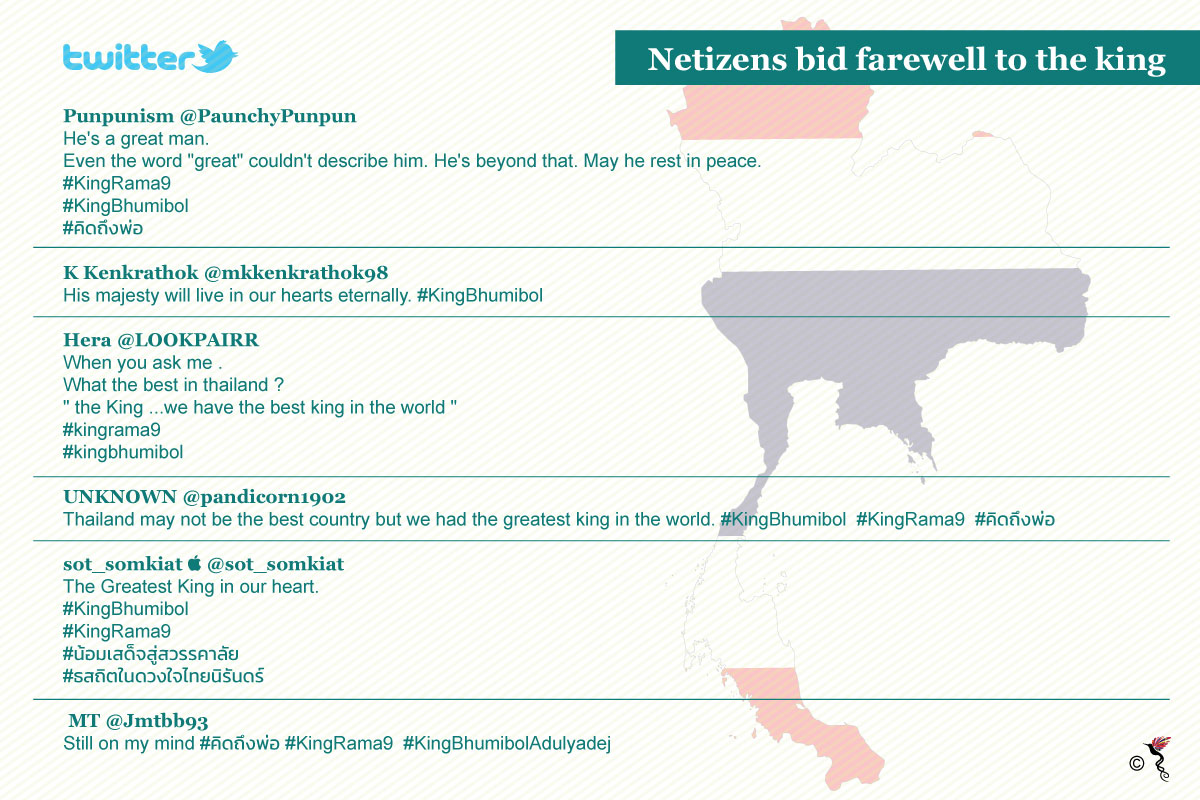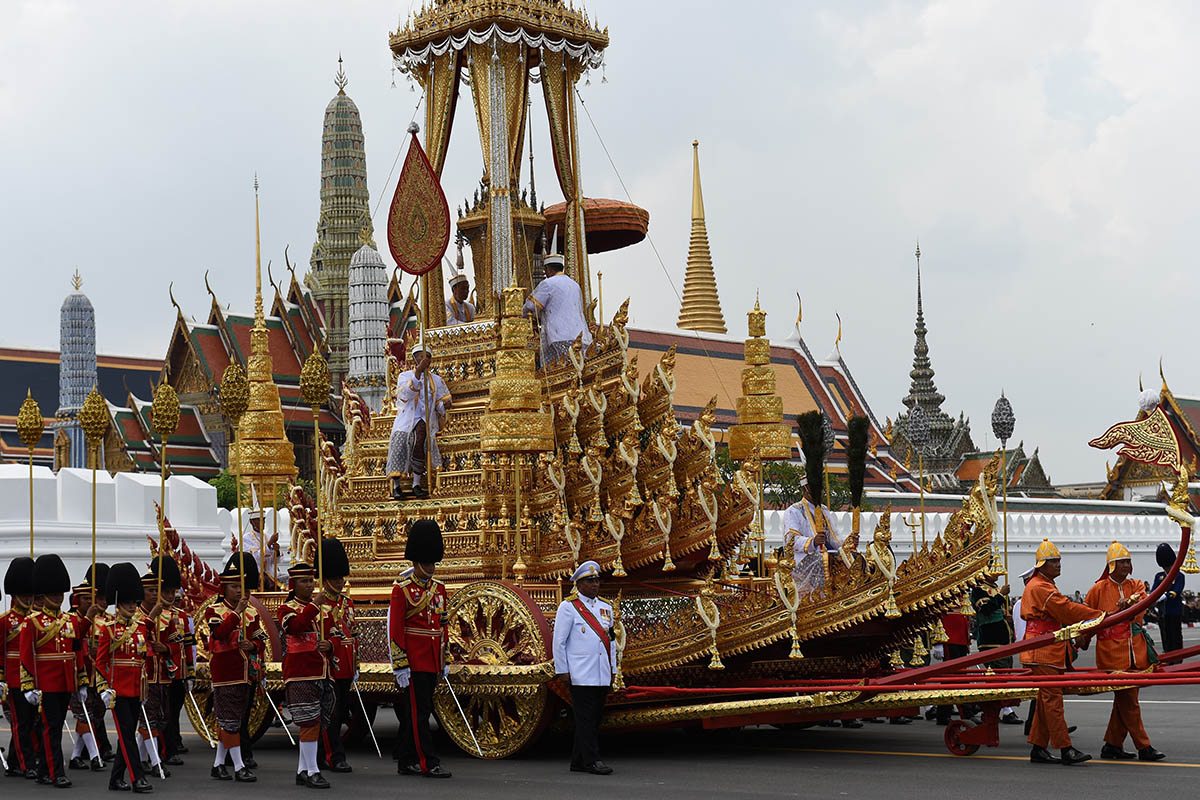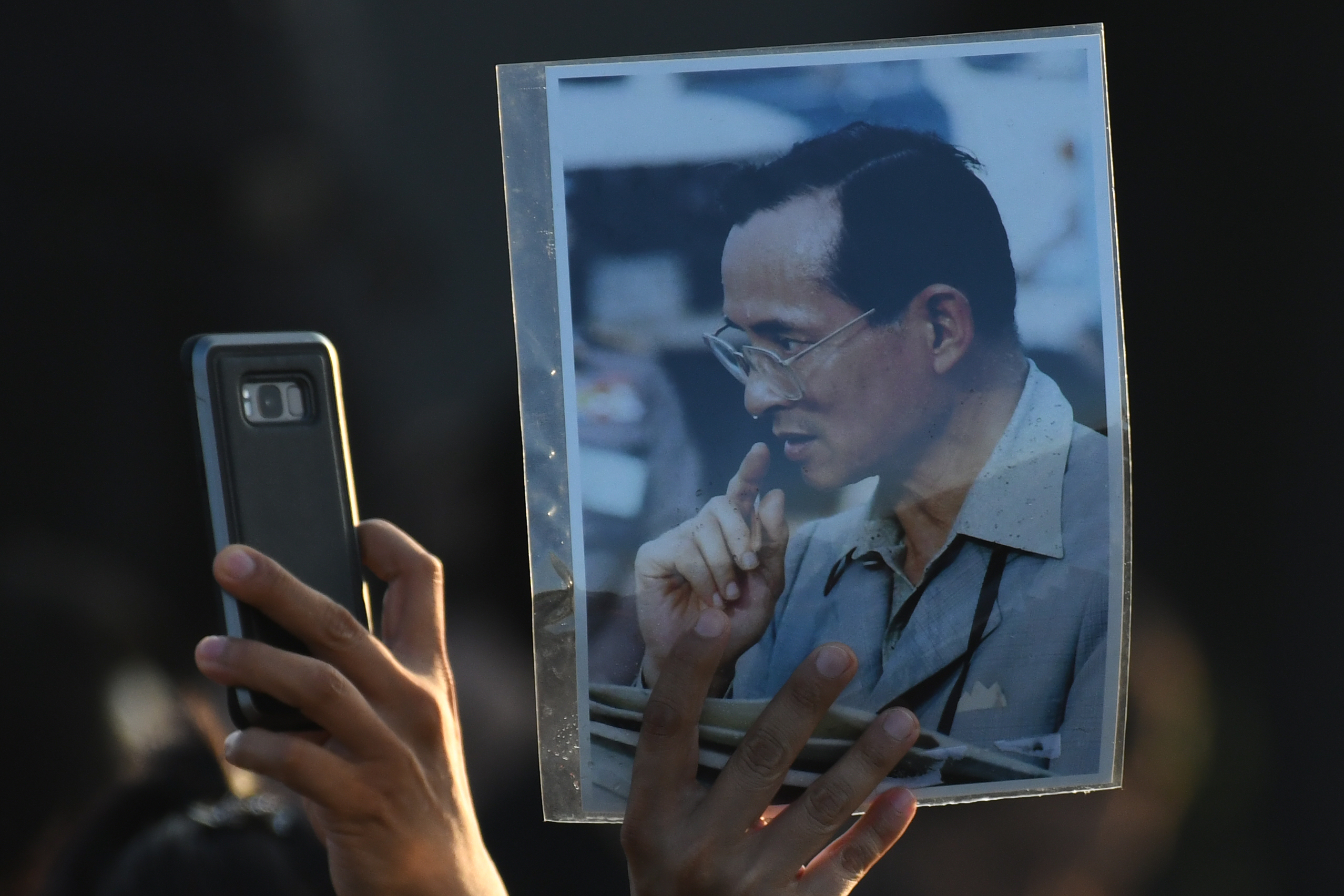After a whole year of mourning, it is finally time for Thai citizens to bid farewell to the revered King Bhumibol Adulyadej. The late king is regarded as an important father figure to a nation of over 68 million people. Thais of different ages have gathered near the Grand Palace in prayers as they wait faithfully by their king for the gates of heaven to open.
“He was not only the father of the nation, he was a literal father to us individually. No matter which part of Thailand you’re from, there will be something that he has done for us that we’ll hold in our hearts eternally,” Min Wararat – a 38-year-old teacher from Bangkok – told The ASEAN Post.
In Shanghai, China, Thai golfer Kiradech Aphibarnrat fought back tears after playing through pain and emotion on the day of the Royal Funeral at the World Golf Championships-HSBC (WGC-HSBC) Champions. According to AFP (Agence France-Presse), the 28-year-old golfer was dressed all in black and fighting back tears when he said: "It's not a good day, we are remembering our king who passed away nearly one year ago."
"Our king will be forever in our hearts, but the show must go on and I need to keep doing my job and hopefully I will take the trophy home for our king," he added.
Although he was born into power, King Bhumibol had never once acted like he was above his subjects. Instead, he viewed his beloved Thai citizens as equals; he had always taken the opportunity to walk amongst the commoners which helped him to understand the challenges that they face on a daily basis. His hands-on approach has not only garnered the love of his people, but it also helped him to improve the quality of life for the nation as a whole. The relationship between King Bhumibol and the common Thai people isn't something that any foreigner would be able to comprehend. The tight bond between the monarch and the people is built on trust, genuine care and respect.

Thai citizens took to social media to express their love and gratitude for the late King Bhumibol Adulyadej.
King Bhumibol as Thailand's “King of Development”
To us non-Thais, the Royal Cremation ceremony and the year-long mourning is rather a beautiful and unfamiliar sight. It is heart-warming to see the amount of reverence shown to the late king, who was deemed a demi-god by his people. However, the this deep devotion to the king has never ceased to amaze us.
King Bhumibol Adulyadej has been praised and worshipped as a force of unification in the often tumultuous Thailand. He is loved for addressing the needs of both urban and rural populations, as well as moderating internal strife among the nation's divided political parties.
The late king had developed a diverse skill set coming from an engineering background. He dedicated much of his reign to Royal Development Projects (RDP) which advanced infrastructures in order to provide food and basic necessities for his people.
Most of these royal projects were started as self-conducted experiments in the gardens of Chitralada Villa – his personal residence at the Dusit Palace. Experiments were conducted in mostly agriculture and small-scale industry. Once they became a success, projects were made available to his people and implemented all over Thailand. Apart from that, the king made regular visits to many rural and impoverished communities and sites, which inspired the implementation of some 3,000-plus projects since 1952 since his ascent to the throne.
The first RDP – which specifically highlighted rural development – emerged in 1952 when His Majesty donated a number of bulldozers to the Naresuan Border Patrol Police unit for the construction of a road leading to Huai Mongkol Village in the Hua Hin district of Prachuap Khiri Khan province. This enabled villagers to commute and transport their produce to the marketplace outside the village with ease. The other RDPs included many other water sourcing projects as he understood the importance of a good water management system to the rice-yielding nation and its people.

The Royal Urn is carried in the Royal Chariot during the funeral procession for the late Thai king Bhumibol Adulyadej in Bangkok on October 26, 2017. (AFP Photo/Anthony Wallace)
“King Bhumibol made clear to the people that he was interested about them, the reason why he was credited with economic development,” said Michael Montesano, Coordinator of the Thailand Studies Programme of the ISEAS-Yusof Ishak Institute in Singapore, in a phone interview with The ASEAN Post.
These economic developments have both directly and indirectly improved the lives of the Thai people by providing them with job opportunities and better accessibility to facilities which enhanced the overall quality of life. The care that was shown by the king has touched the hearts of the Thais and in return, they are extremely protective of him and often display a great deal of respect as well as appreciation for him.
Throughout his 70-year rule, King Bhumibol was regarded as a demigod who embodied the values of the Buddha. He was and will always be cherished as a champion of the poor, and seen as a force that unites a country wrecked by decades of political revolution.
May King Bhumibol Adulyadej rest in peace.
Recommended stories:
